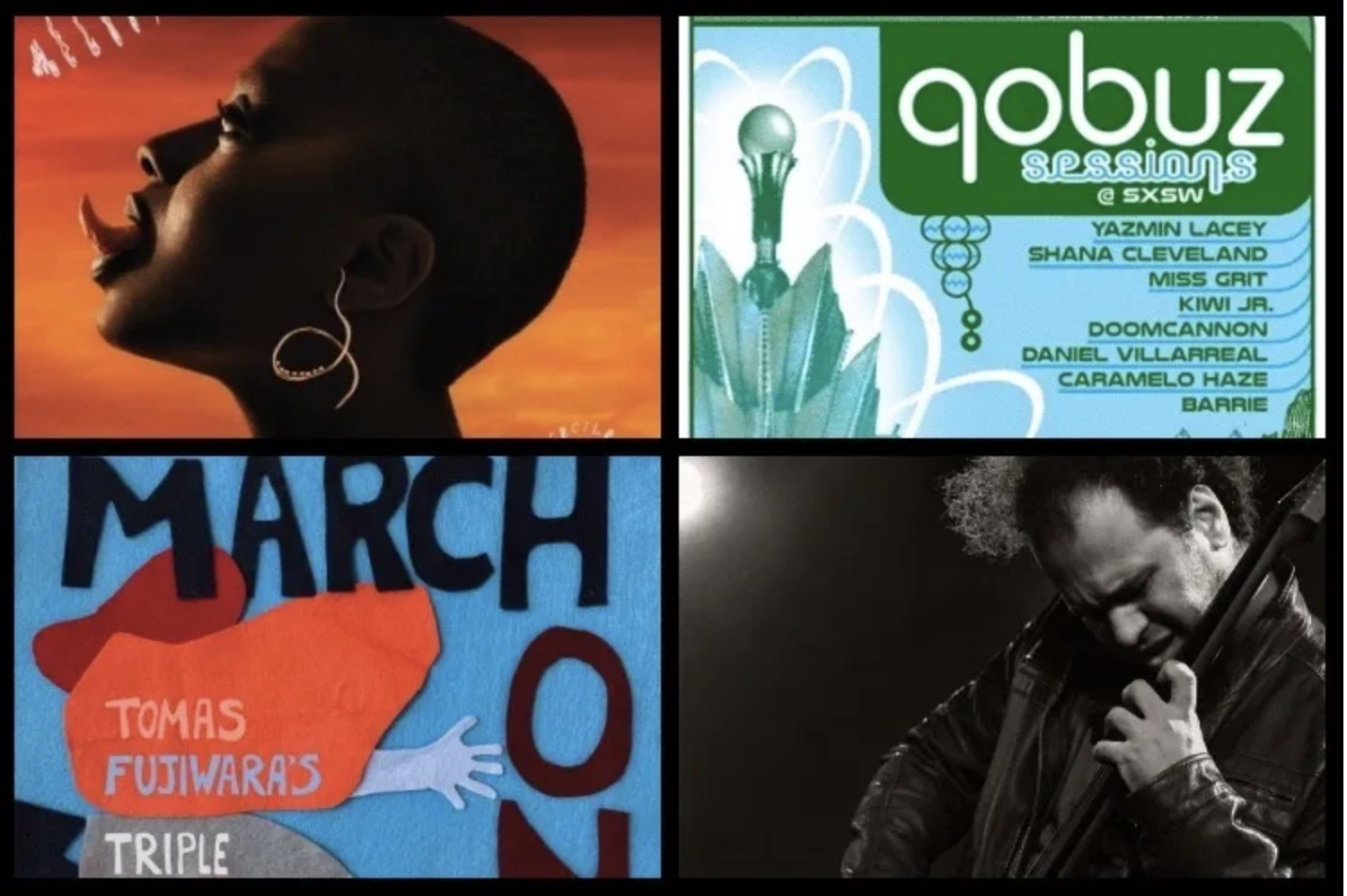LAURIE ANDERSON, CHRISTIAN MCBRIDE & RUBIN KODHELI TRIP THE LIGHT FANTASTIC IN A CONVULSIVE SET
LA WEEKLY
https://www.laweekly.com/laurie-anderson-christian-mcbride-rubin-kodheli-trip-the-light-fantastic-in-a-convulsive-set/
PostGenre
While not necessarily a household name – even in creative music circles- Rubin Kodheli has been part of some of the finest boundary-pushing projects of the last decade. The cellist has served as a third voice with Laurie Anderson and Christian McBride. He’s been part of another trio with the recently departed Riyuchi Sakamoto on keys. And he is on one of the best albums of the 2010s. When an artist with this diverse background releases a work called Departure, the immediate inquiry becomes what characteristics he wishes to abandon, given he does not seem penned in to begin.
For starters, Kodheli puts aside the traditional cello in favor of a unique electric one designed by Ned Steinberger. This left-of-center tool allows the cellist to provide textures more commonly associated with an electric guitar. Perhaps Kodheli is attempting to escape the pomposity many wrongly associate with a stereotypically classical string instrument. That’s not to say the work is without moments of grandeur, particularly within Kodheli’s solos on “Mountainous Crag.” That piece also provides a repetitive motif that speaks of minimalism. But those more classical elements but a few of several colors at the trio’s disposal. Apple Music identifies the EP as “punk” music. Of course, it sounds nothing like Black Flag or the Sex Pistols, but that open defiance of the establishment is a shared characteristic nonetheless. The driving rhythms of bassist Trevor Dunn and drummer Brian Chase also give an impulsive heavy-metal aesthetic to the outing. Compositionally, the pieces are freely improvised, harkening to the long history of jazz. It’s an intriguing work that defies convention as it finds its own musical space. – Rob Shepherd
Laurie Anderson: Duet w/ Rubin Kodheli
SF CLASSICAL VOICE
A sublime night of string duos and more, as Anderson and cellist Rubin Kodheli have developed a distinctive style of improvisation that features what Anderson calls their combined "hyper-instrument" - part acoustic, part electronic.
NEWPORT JAZZ FESTIVAL
WITH LAURIE ANDERSON AND CHRISTIAN MCBRIDE
ROLLING STONE
Rubin Kodheli, a cellist who was every bit their match, they played a series of deeply sympathetic improvisations, open-ended yet informed by each player’s impeccable ears and willingness to play a supporting role when needed.



